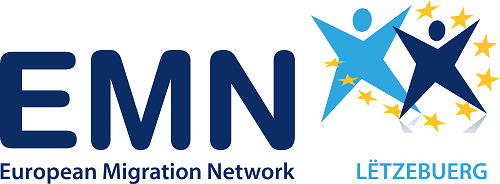The present report summarises the main findings of the LU Study on “The effectiveness of return in EU Member States: challenges and good practices linked to EU rules and standards”.
The impact of EU rules on Luxembourg’s return policies and practices is substantial. This is not least a result of the transposition of Directive 2008/115/EC on return into national law by the Law of 1 July 2011, which was then further developed through amendments in 2014 following the conclusions of the European Commission that Luxembourg was not fully in line with the directive.
With regards to the European Commission Recommendation of 7th March 2017 ‘on making returns more effective when implementing the Directive 2008/115/EC’, Luxembourg did not introduce any specific legal or policy change. Most of the referenced provisions already form part of the national legal and/or policy framework.
The government’s efforts to conclude and apply readmission agreements with third-countries to better organise returns have continued throughout 2016. The Benelux Member States concluded a readmission agreement and a protocol of implementation with the Republic of Kazakhstan on 2 March 2015, which was approved by Law of 31 August 2016.
As a result of the relatively high influx of asylum-seekers in 2015/2016, a backlog in the processing of applications for international protection occurred and could only be properly addressed by the Refugees and Return Department of the Directorate of Immigration through an increase and a reorganisation of its administrative staff.
On the other side, the impact of the migration situation 2015/2016 did not significantly affect the functioning of the Detention Centre nor its maximum occupation limits. However, the Detention Centre took over the management of the SHUK (Structure d’hébergement d’urgence Kirchberg) a new semi-open facility established for Dublin cases (single men) with a view of transferring them to the responsible Member State.
Although vulnerable groups are generally not detained in Luxembourg, the permitted period of detention of families with children was recently (March 2017) extended from 72 hours to 7 days with a view to enhancing the organisation of their return. The controversial extension through law amendment was largely criticised by civil society organisations and hence debated in parliament.
The definition of guarantees to avoid the risk of absconding remains a major challenge in the field of return and (alternatives to) detention. In most cases, the applicant fails to provide evidence enabling the reversal of the legal presumption of the existence of a risk of absconding, allowing the Minister to use a detention measure instead of another less coercive measure. As long as the concerned third-country national is unable to indicate a fixed address of stay (reception facilities are not taken into account), the competent authorities cannot rule out the existence of a risk of absconding. The practical implementation of ‘home custody’ as an alternative to detention is therefore considered problematic, with most potential candidates not having a fixed address in Luxembourg. The substantial amount of the financial guarantee, 5.000€, make it also difficult to practically implement release on bail as an alternative. Although the Law foresees the possibility of combining home custody with electronic surveillance, the electronic tag has not yet been implemented.

